Top 10 Small Business Branding Services (2026)
Explore small business branding services tailored to grow your brand identity, attract customers, and enhance recognition in competitive markets.

Small businesses and startups often race to ship product features and sign their first customers. Branding can feel like a distraction. Yet the way people perceive your company—your visual identity, messaging and the values you project—shapes how quickly they trust you.
Early‑stage teams don’t have the luxury of multiple missteps. They need the right foundation from day one. I’ve spent the last decade building brands for AI and SaaS startups. One pattern keeps emerging: teams that invest in a clear identity and consistent storytelling land customers and talent faster.
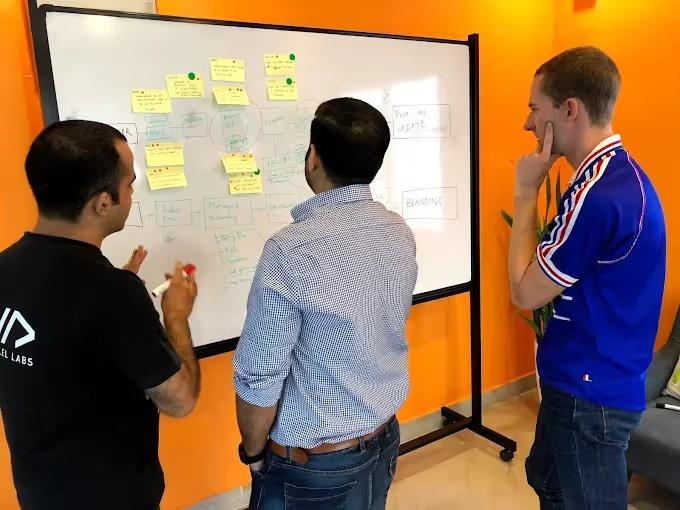
A 2025 marketing study notes that brands with high consistency tend to see revenue growth of 10% or more. West Virginia University’s marketing researchers also found that 66% of consumers will only purchase from brands they trust, and that consistency builds trust. These numbers remind us that branding isn’t vanity; it’s the bedrock of growth.
Small businesses face budget and staffing challenges, with founders juggling multiple roles. This article simplifies small business branding services, explains agency evaluation, and lists top providers. It offers practical guidance and insights for startups and e-commerce brands, drawing on data and experience.
What small business branding services cover
Branding is a broad term. In simple terms it’s how a company expresses itself so people recognize, remember and trust it. According to Ramotion’s 2025 brand identity guide, brand identity is the foundation of a business’s existence, growth and development. It encompasses unique characteristics, personality, vision, mission and goals and manifests through tangible and intangible elements across communication channels. That translates into several service categories:
- Brand identity – visual assets such as logos, typography, color palettes, icons, and design systems. These give your brand a cohesive look and feel.
- Brand strategy – positioning, market research and audience analysis. Good strategy defines who you’re for, what makes you different and how you’ll be remembered.
- Brand messaging – tone of voice, value proposition, taglines and storytelling. It’s the words you use to communicate your vision and inspire trust.
- Visual branding – packaging, website design, product UI and offline touchpoints like signage or business cards. It translates identity into every medium.
Done well, branding goes beyond aesthetics. It builds a personality, helps people understand your market positioning, and fosters consistent brand awareness. Ramotion notes that a coherent identity helps separate you from competitors and creates emotional connections. WVU’s study points out that brands like Nike and Apple achieve loyalty through decades of consistent logos and messaging. For small businesses with limited resources, crafting this consistency early pays dividends.
Why personality and positioning matter
A logo alone doesn’t build a brand. People connect with stories and values. ImageKit’s report highlights that 66% of consumers define trust as feeling connected to a brand, while 53% believe shared values drive that connection. In our work with AI startups, teams that share their mission and principles—whether it’s transparency in data usage or commitment to accessibility—see higher user engagement. Personality shapes perception.
Positioning is equally critical. It clarifies how your solution fits into the market and why customers should pick you over incumbents. Without a clear position, even great products get lost in the noise. Effective small business branding services bundle positioning research with design and messaging, ensuring that every element speaks to the right people.
How to evaluate a branding agency
Choosing a branding partner can feel daunting. Here’s what we advise founders to consider:
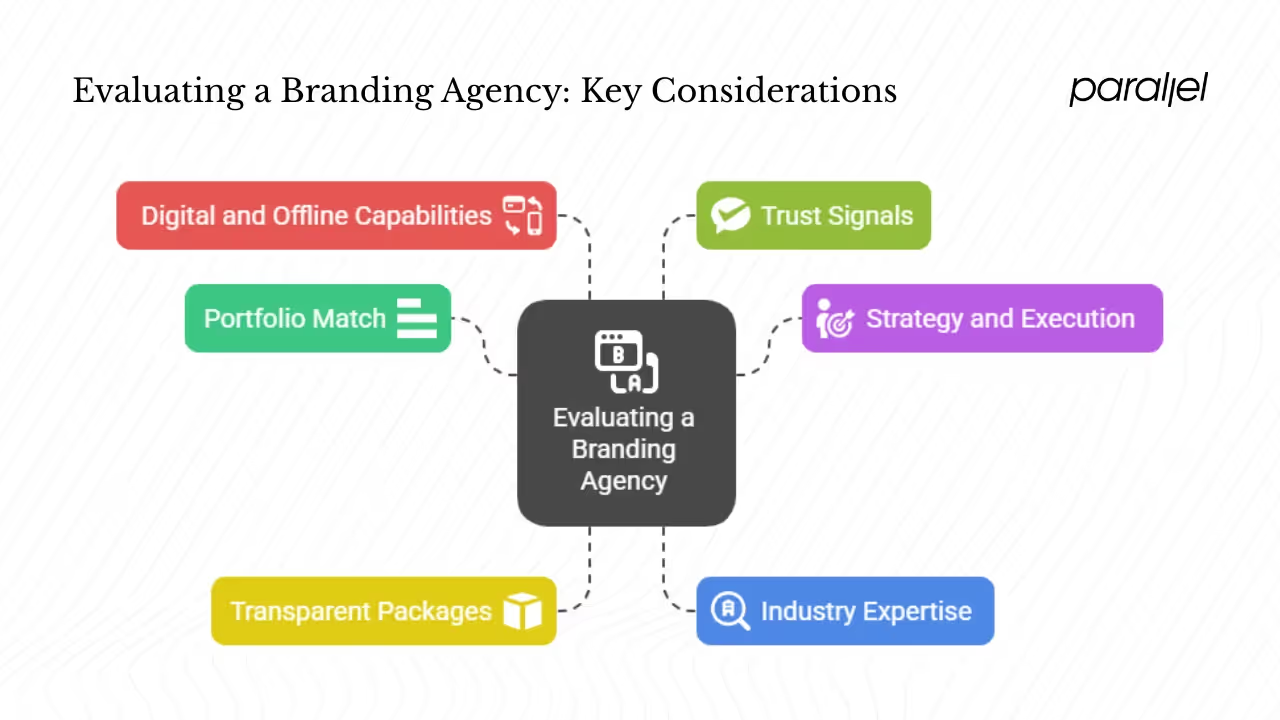
1) Match their portfolio to your stage and industry
Review the agency’s work and see if it resonates with your industry and stage. A studio that excels at e‑commerce may not be the best fit for a deep‑tech AI platform. Look for case studies that show results for startups of a similar scale. In our experience, early‑stage teams benefit from agencies accustomed to agile, iterative design rather than traditional big‑brand rollouts.
2) Balance strategy and execution
Great branding marries research with craft. Ask how the agency balances brand strategy—market positioning, audience segmentation, naming—with design execution. Some studios lean heavily on visuals while neglecting narrative. Others produce strategy decks without translating them into tangible assets. A balanced approach ensures your story is both well‑reasoned and beautifully expressed.
3) Transparent packages and custom solutions
Small businesses vary widely in needs and budget. Look for agencies offering modular branding packages—from logo refreshes to full brand systems—with clear pricing. At the same time, ensure they can tailor solutions as your company evolves. A subscription model can provide ongoing design support; project‑based engagements might suit one‑time rebrands.
4) Industry expertise and collaborative process
Ask about their experience with your sector (e.g., SaaS, fintech, direct‑to‑consumer). Understanding industry nuances speeds up research and yields more relevant positioning. Equally important is process. Branding is a collaborative journey. An agency should involve founders and product teams in workshops, share iterations openly, and remain flexible as insights emerge. Look for partners who offer brand consultation and continue supporting your team after the project wraps. WVU’s research notes that although 85% of companies have brand guidelines, less than one‑third actually follow them. Ongoing support helps you implement and maintain your brand consistently.
5) Digital and offline capabilities
Today’s brands live across websites, mobile apps, social feeds and physical products. Forbes’ 2024 analysis stresses that messaging must transition seamlessly between physical and digital environments. When evaluating agencies, ask if they handle digital branding (websites, UI/UX, social media assets) alongside offline assets like packaging and signage. This holistic approach ensures your identity stays consistent wherever customers encounter it.
6) Trust signals and values alignment
Building a brand is about trust. Qualtrics reports that 61% of consumers need to trust the information a brand shares before they engage. Agencies should earn your trust too. Look for testimonials, client references and, most importantly, shared values. You’ll be working closely on sensitive questions about who you are as a company. Choose a partner who listens and shares your commitment to ethical practices and user‑centric design.
Top 10 small business branding service providers
The following list presents ten agencies that repeatedly stand out when small businesses ask for help. We focus on what each excels at, who they serve best and how they differentiate themselves. Pricing information is noted where publicly available.
1. Parallel

- Website: parallelhq.com
- Services: end‑to‑end brand identity systems, brand strategy, UX/UI integration, storytelling.
- Known for: A design‑led strategy approach that integrates product design with brand voice. Having worked with AI, fintech and SaaS startups, Parallel blends research, visual design and user experience into one process.

- Ideal clients: Startups and small businesses ready for bold, high‑impact branding and digital products.
- Why it’s #1: Parallel balances modern brand strategy with high‑quality execution. Their process emphasises market positioning and real user feedback. Because they also design interfaces, they ensure the brand identity flows into the product experience—key for early‑stage tech companies.
- Differentiators: Seamless integration of product design, narrative, and brand personality. They offer strategic workshops that help founders clarify their mission before a single pixel is drawn.
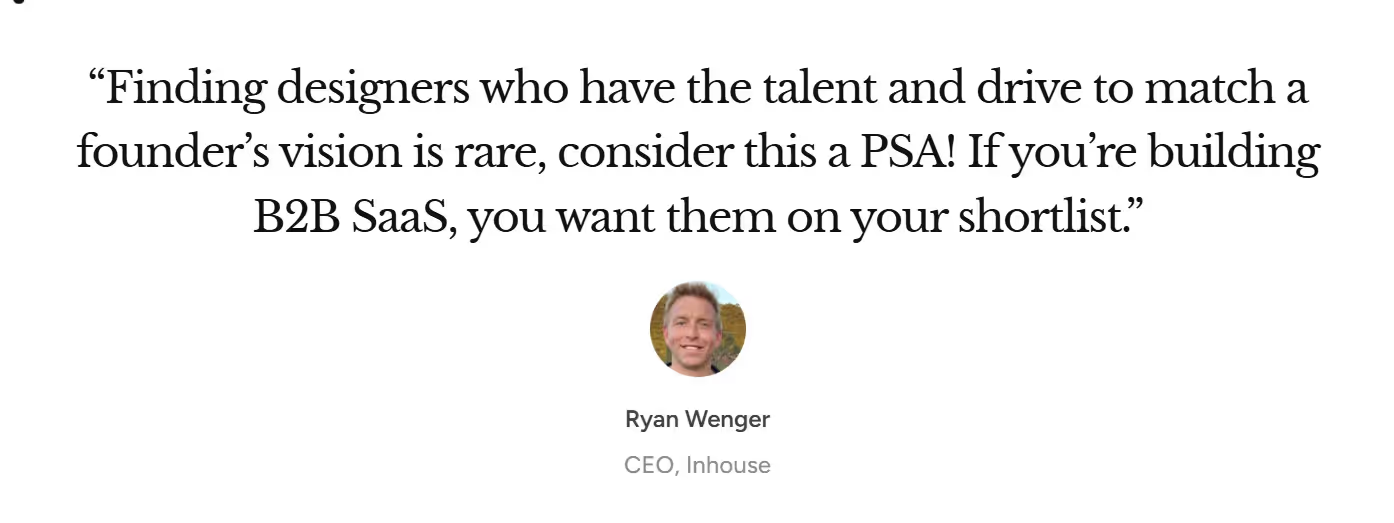
2. Duck.Design
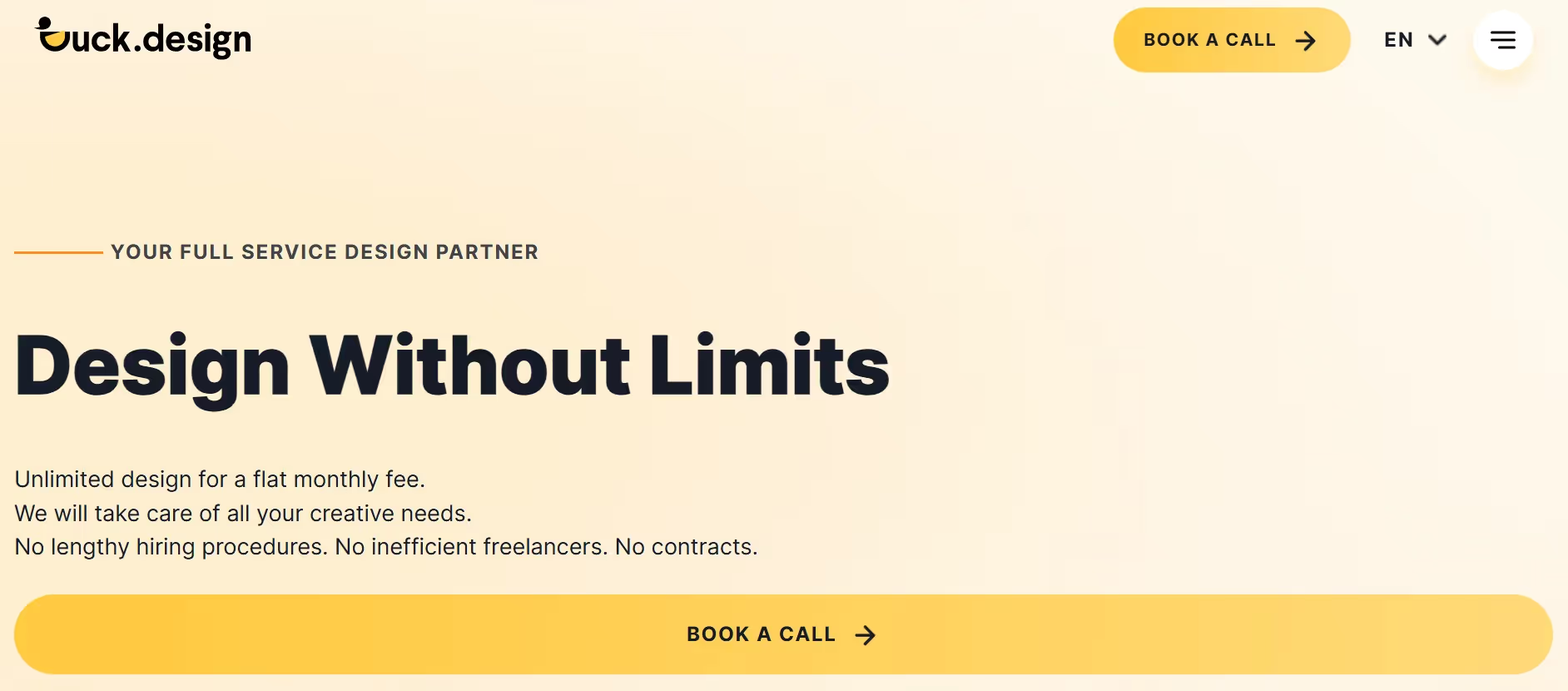
- Website: duck.design
- Services: subscription‑based design plans covering logo design, visual identity, UI assets, pitch decks and ongoing graphic work.
- Known for: Flexible branding packages delivered on a monthly basis. Clients subscribe to a design queue and receive continuous output without negotiating separate contracts for each asset.
- Ideal clients: Startups that need quick, consistent design output—especially those iterating rapidly on products and marketing campaigns.
- Why choose them: The subscription model makes high‑quality design accessible. It’s like having an on‑call design team without the overhead.
- Differentiators: Simple pricing tiers, fast turnaround and the ability to cancel or scale as needed. If you’re testing multiple brand directions or need lots of marketing collateral, this structure is attractive.
3. NinjaPromo
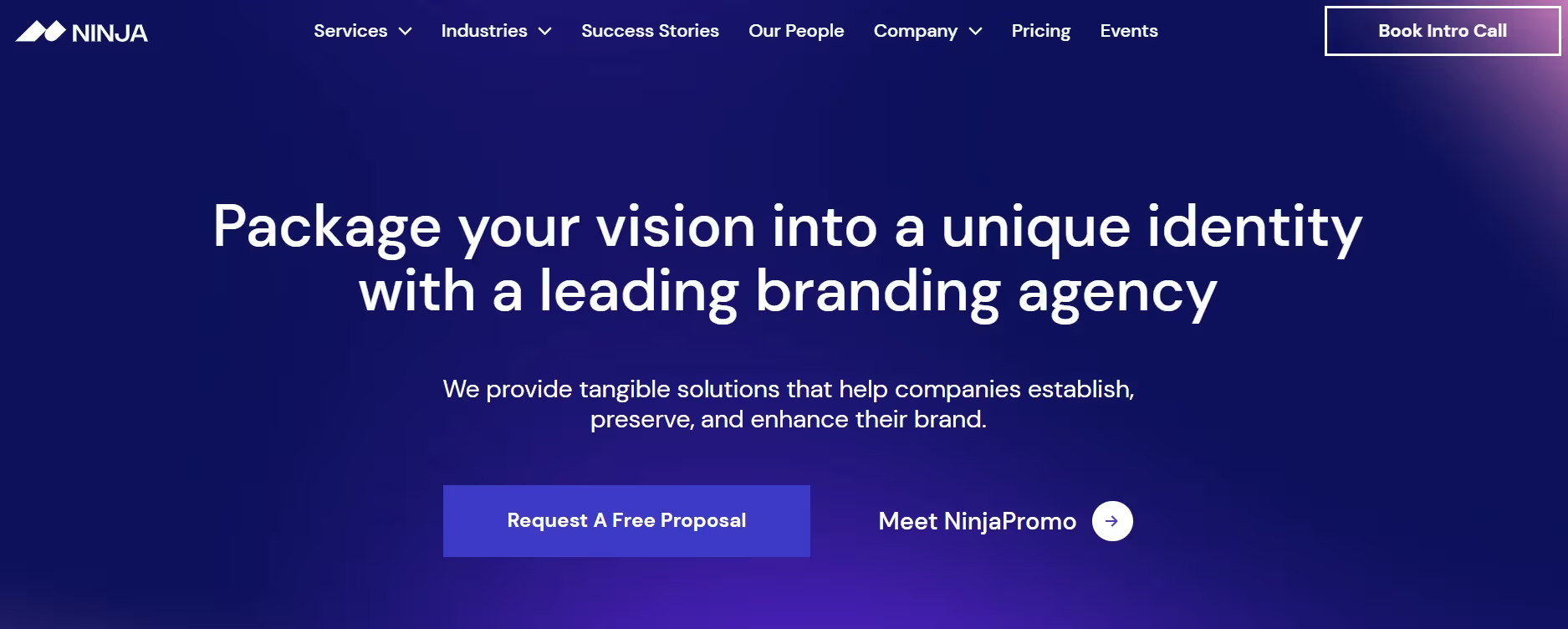
- Website: ninjapromo.io
- Services: brand identity, social media branding, digital campaign management, influencer outreach and community building.
- Known for: Combining digital branding with full‑stack marketing. They take your strategy from logos to targeted ads.
- Ideal clients: SaaS, fintech, crypto and direct‑to‑consumer brands seeking integrated marketing and branding support.
- Why choose them: If you’re launching a product and need both brand development and immediate market activation, NinjaPromo handles both. Their campaigns boost brand awareness and manage reputation across social platforms.
- Differentiators: They leverage specialists across design, paid media and community management, offering a single partner for end‑to‑end digital presence.
4. Ramotion
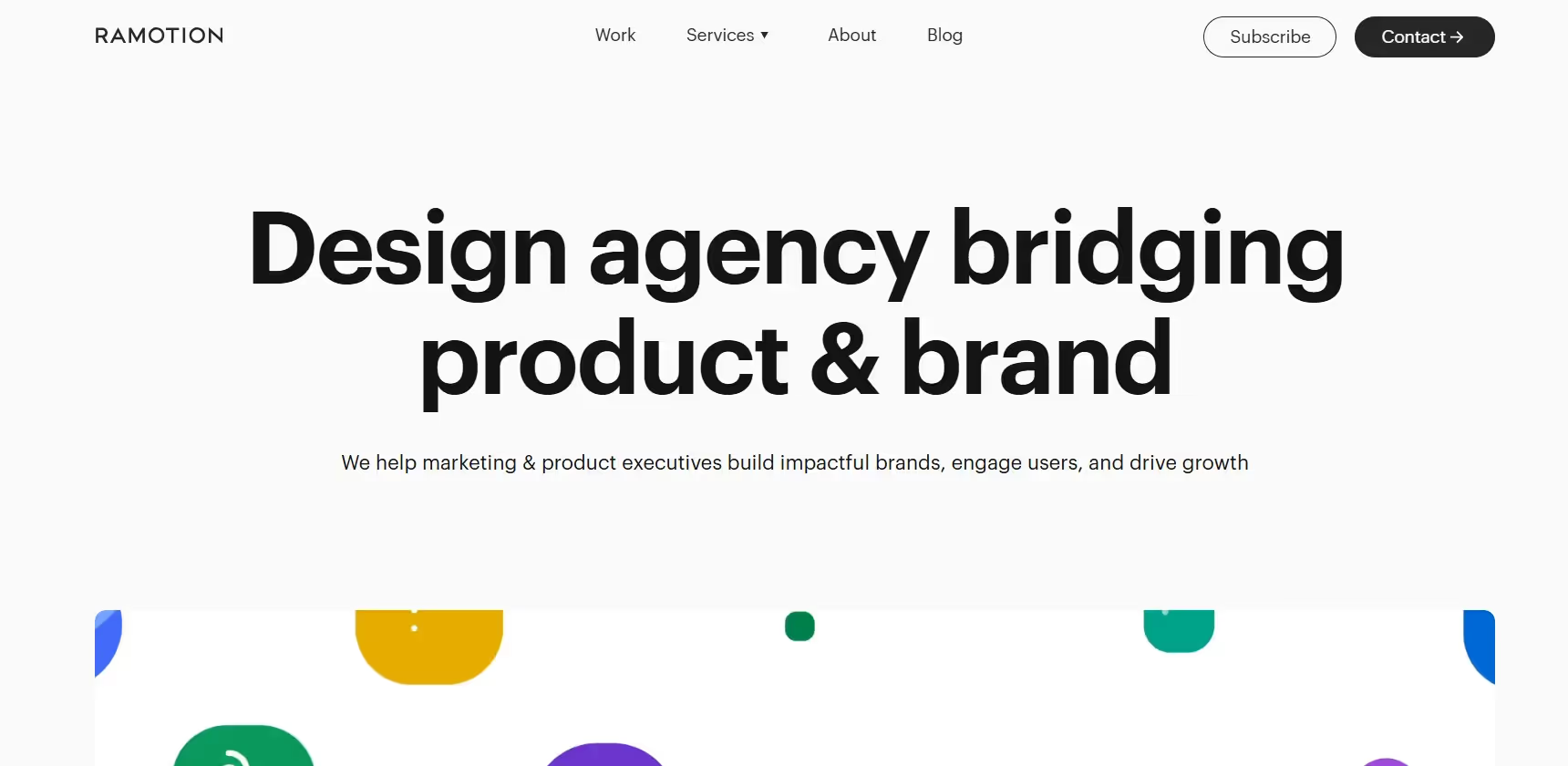
- Website: ramotion.com
- Services: brand identity design, UI/UX design, mobile‑first branding and web development.
- Known for: Clean, modern brand identities with a strong emphasis on design systems and digital product integration.
- Ideal clients: Early‑stage tech startups, especially those seeking premium design and cohesive digital experiences.
- Why choose them: Their expertise spans both product and brand, ensuring your app and site carry the same personality. They use research to inform typographic systems and color palettes.
- Differentiators: A reputation for detailed craftsmanship and a collaborative process. They publish open‑source resources and thought leadership on design systems, making them a partner for teams who value learning.
5. The Branx
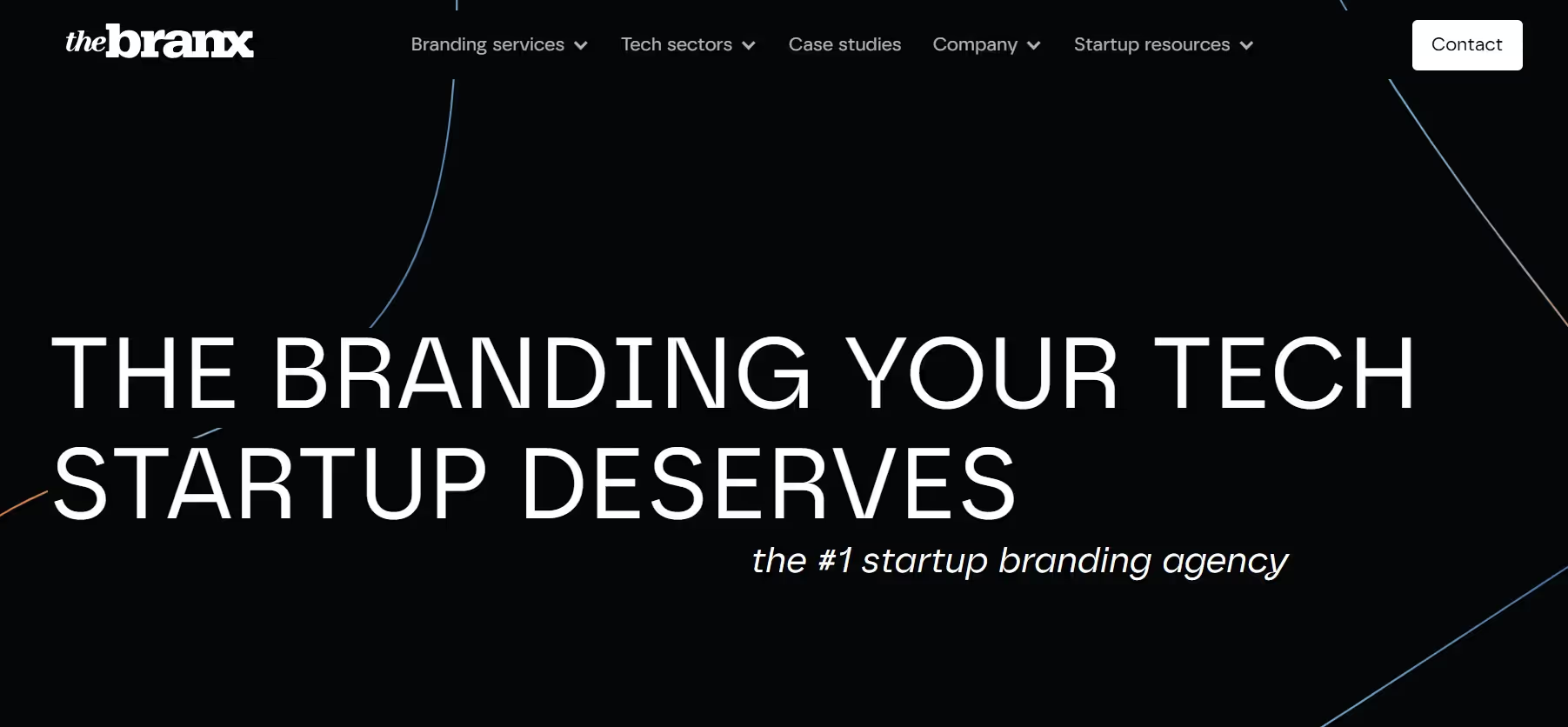
- Website: thebranx.com
- Services: brand strategy, positioning, messaging frameworks, naming and brand guidelines.
- Known for: A focus on positioning and brand messaging. They help founders articulate their unique value before designing visuals.
- Ideal clients: Founders preparing for launch or rebranding ahead of fundraising. Particularly suited to tech and SaaS startups.
- Why choose them: The Branx emphasises workshops and research. They help teams craft a compelling go‑to‑market story and align internal teams around it.
- Differentiators: Deep founder involvement and deliverables that include naming, tagline and story frameworks—assets many agencies overlook.
6. Red Antler
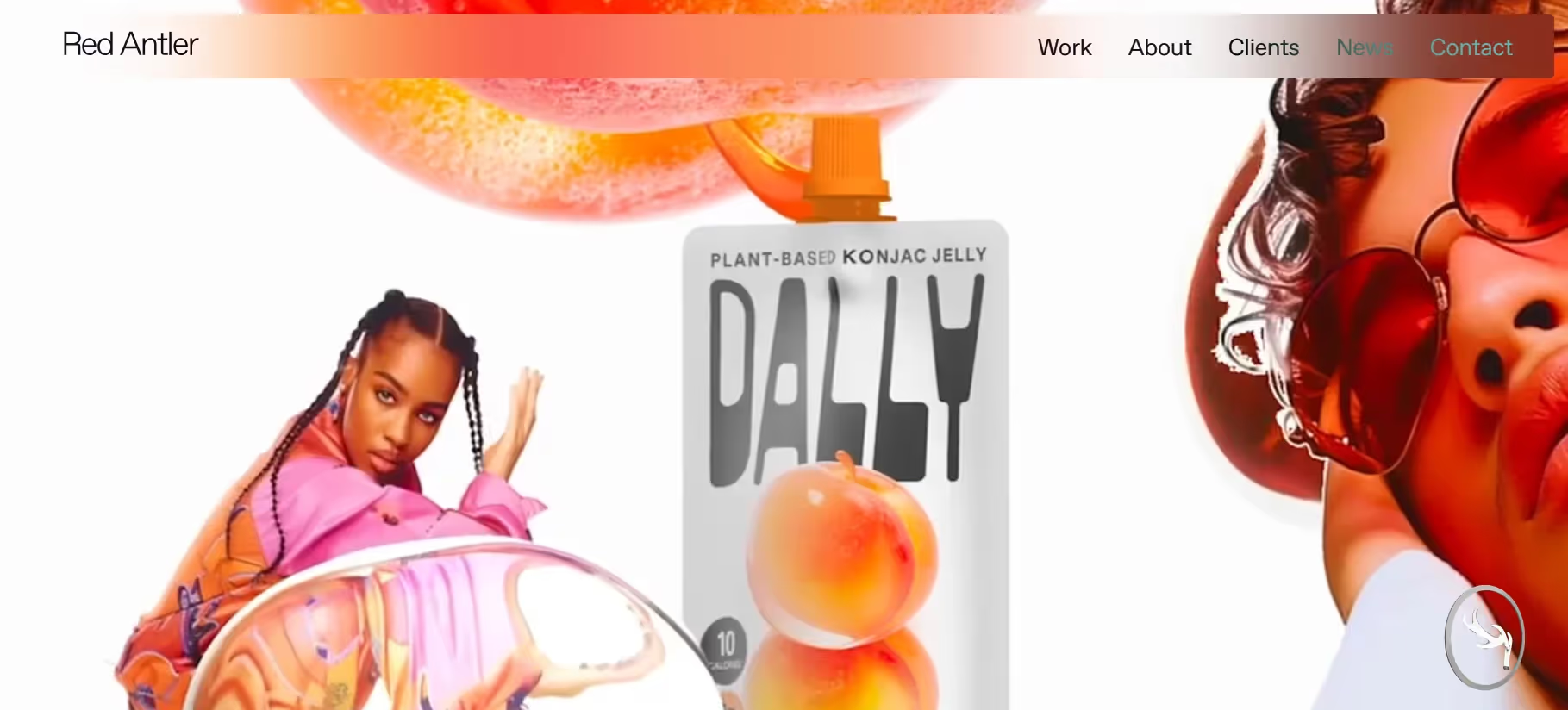
- Website: redantler.com
- Services: full brand development, go‑to‑market support, packaging design, digital campaigns.
- Known for: Creating iconic identities for venture‑backed startups (e.g., Allbirds, Casper). They specialise in bold differentiation in crowded markets.
- Ideal clients: Startups with venture funding seeking category‑defining brands; typically consumer products and lifestyle services.
- Why choose them: Red Antler tells strong stories and builds brand personality that resonates emotionally. They have a track record of turning unknown products into household names.
- Differentiators: Their work extends into naming, content and marketing execution. They lean on consumer insights and cultural trends to shape strategy.
7. Focus Lab

- Website: focuslab.agency
- Services: visual identity systems, tone‑of‑voice definition, naming, brand workshops.
- Known for: Process‑driven clarity and depth. They specialise in B2B branding, particularly for SaaS and service companies.
- Ideal clients: Growth‑stage SaaS companies seeking to reposition or clarify their brand before scaling.
- Why choose them: They run immersive workshops that help leadership teams align. Their deliverables include comprehensive brand guidelines and message matrices.
- Differentiators: A strong emphasis on internal adoption. They partner post‑launch to ensure brand guidelines are used across teams, addressing the challenge identified by WVU’s research that many companies fail to follow their own standards.
8. Verve Logic
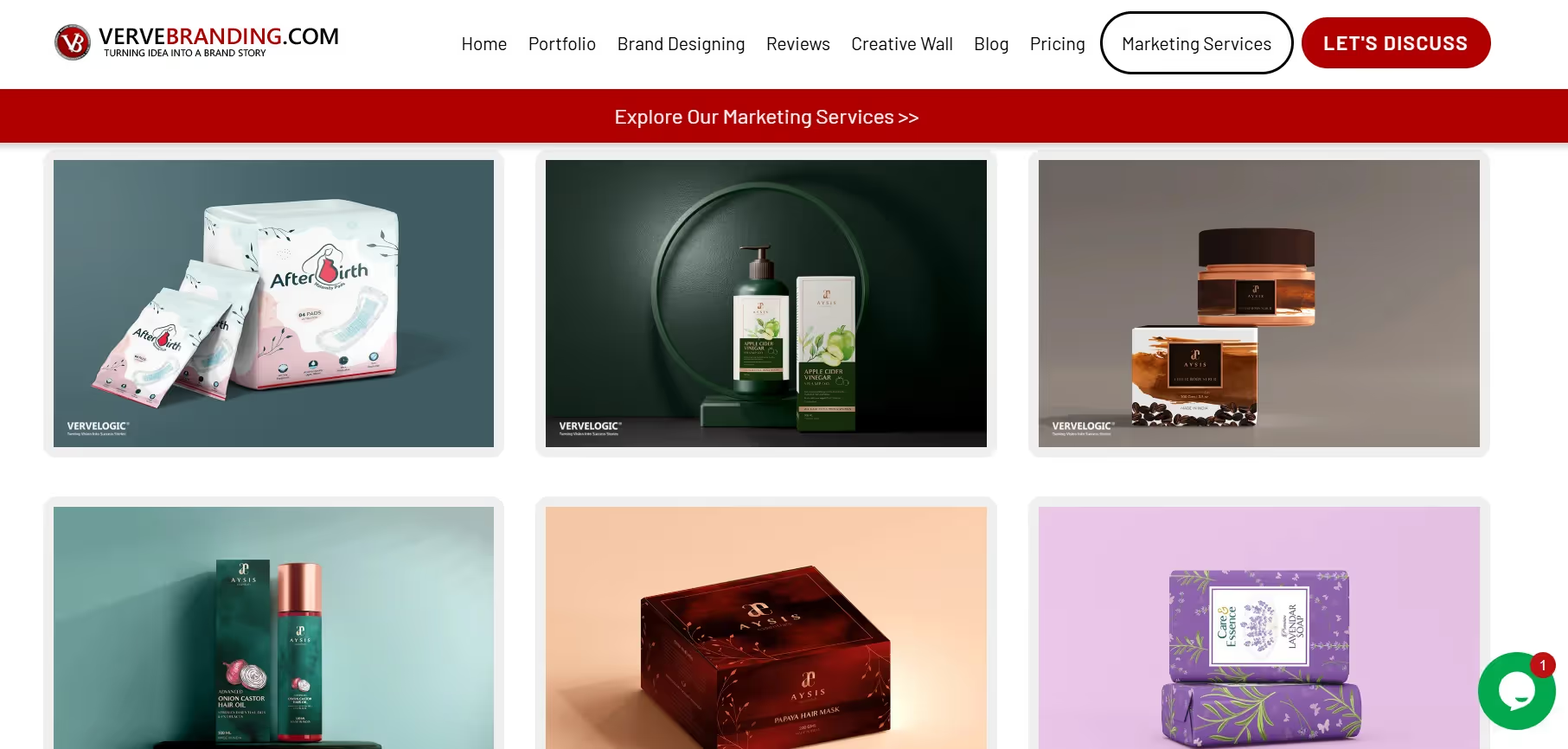
- Website: vervelogic.com
- Services: logo design, digital branding, social media graphics, custom web development.
- Known for: Affordable branding tailored to small businesses in India and globally.
- Ideal clients: Budget‑conscious startups and small enterprises that need professional design without agency‑level costs.
- Why choose them: Verve Logic offers competitive pricing and quick turnaround times. Their packages include multiple logo concepts and revisions.
- Differentiators: Local market knowledge, multilingual support and the ability to deliver both design and development for early digital presence.
9. Spinx Digital
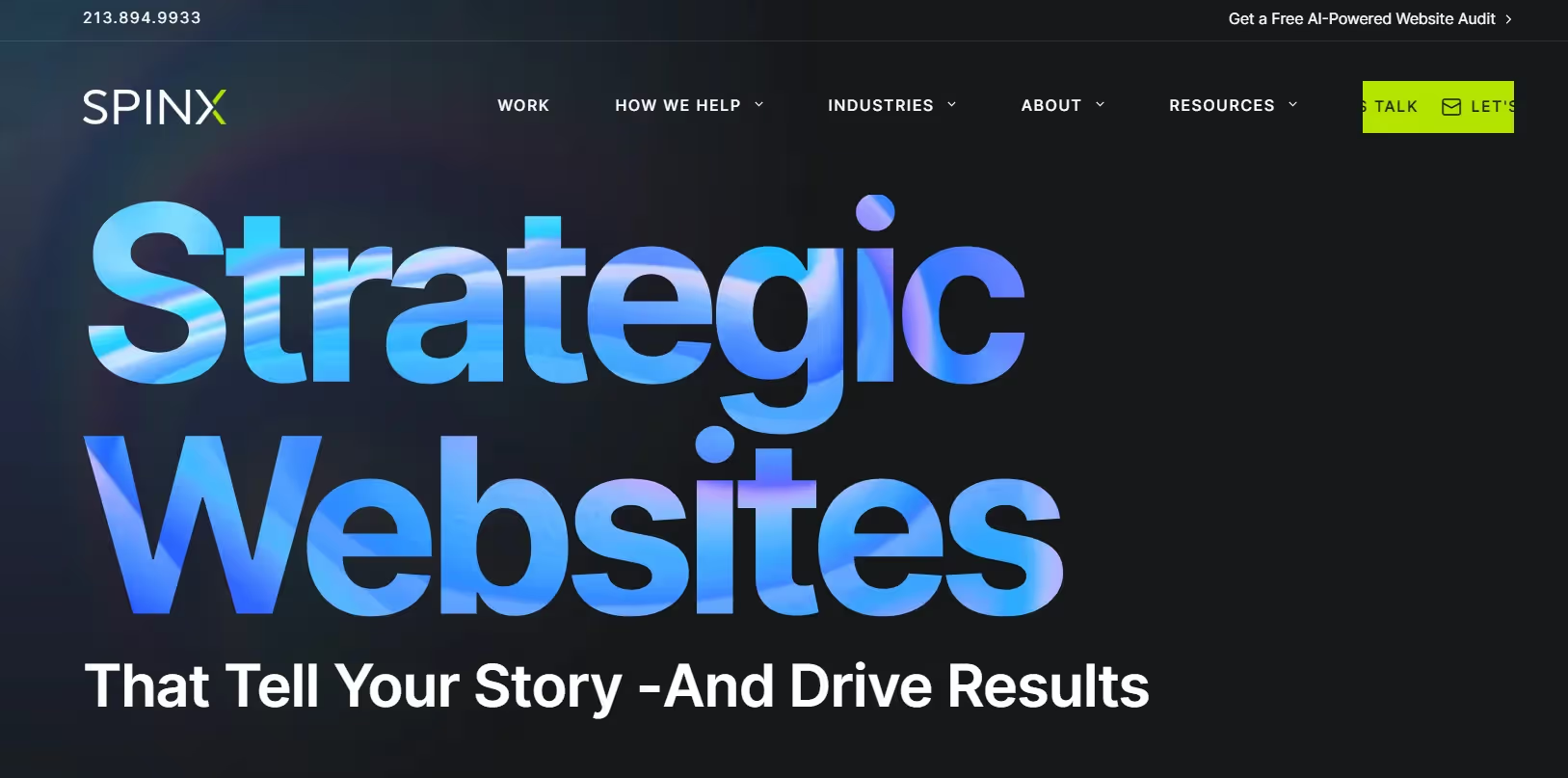
- Website: spinxdigital.com
- Services: branding, web design, user experience design, digital marketing.
- Known for: A user‑first design approach that blends product and marketing perspectives.
- Ideal clients: Startups and businesses wanting to align their product experience with their brand story.
- Why choose them: They prioritise user‑centric branding, ensuring that digital experiences—from websites to apps—are intuitive and consistent with the brand voice. Their work often includes user research and testing.
- Differentiators: Deep expertise in web development and digital experience design, making them a one‑stop shop for online presence.
10. Fabrik Brands
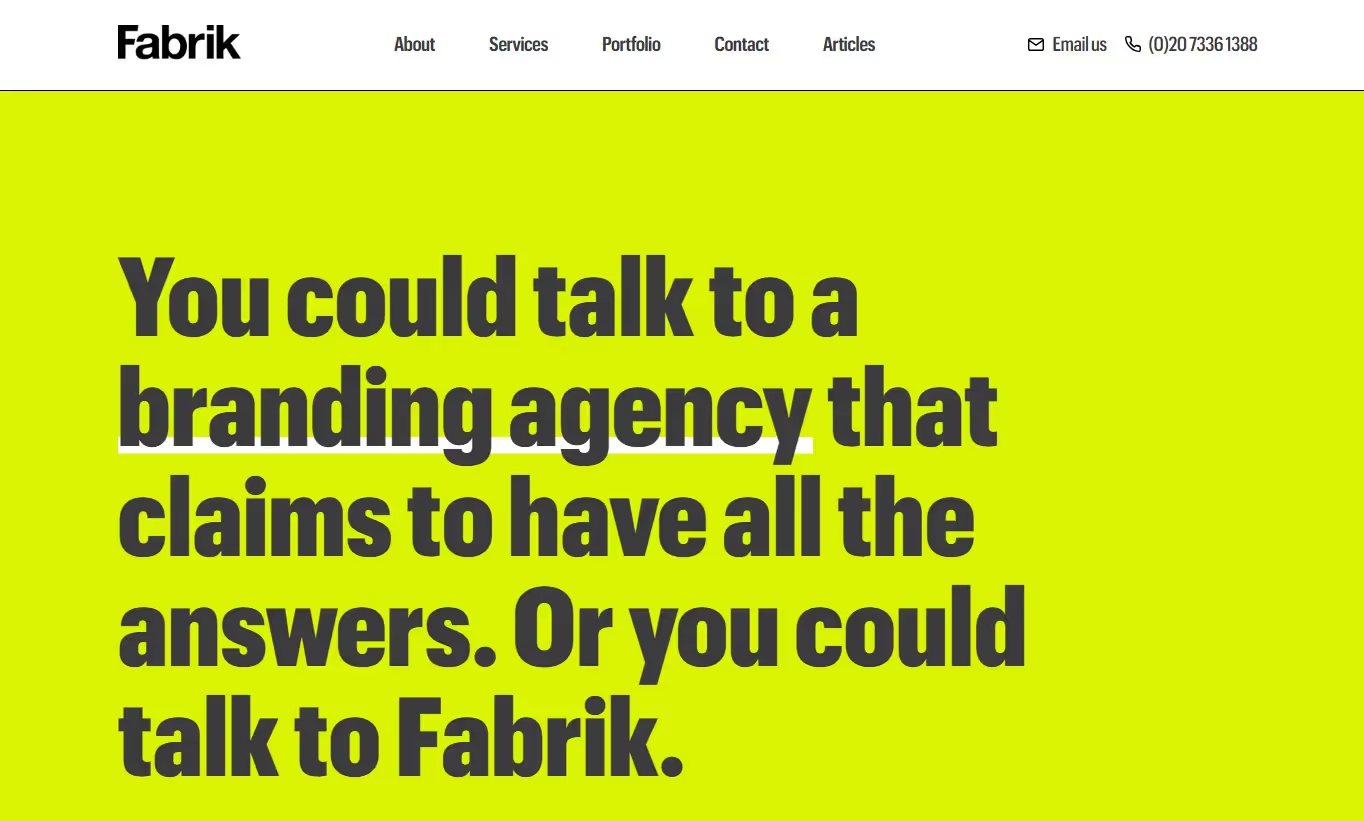
- Website: fabrikbrands.com
- Services: brand audits, positioning, tone of voice development, identity design and naming.
- Known for: Thorough, research‑driven process tailored to each client’s growth stage.
- Ideal clients: Businesses rethinking their identity, entering new markets or merging brands after acquisitions.
- Why choose them: Fabrik dives deep into brand equity, market context and customer perceptions. They craft comprehensive strategies before moving into design.
- Differentiators: They emphasise brand consultation, delivering detailed audits and ongoing guidance rather than a one‑off deliverable.
Conclusion
Good branding isn’t just a logo. It’s the foundation of how people perceive your business, the trust they place in you and the culture you build internally. Research shows that consistent brands can see double‑digit revenue lifts, and that consumers base their buying decisions on trust and shared values. As Forbes notes, every touchpoint is an opportunity to reinforce identity—and that holds true for the internal team as much as the customer.
For small businesses and startups, investing in branding services early might feel like a stretch, but it’s a strategic one. A clear brand identity and strategy will help you attract the right customers, inspire employees, and support sustainable growth. You need a partner who understands your stage, audience, and goals—one that balances strategy with execution and supports all your customer touchpoints.
At Parallel, we are built to be that partner. We help you clarify what you stand for, because that clarity is the true power behind your brand. We combine pointed strategy with practical execution to prepare your business for lasting success.
FAQs: small business branding services
1) How much does branding cost for a small business?
Costs vary widely. A simple logo and basic style guide from a freelancer might start around $500, while comprehensive small business branding services covering strategy, identity, messaging and collateral can range from $5,000 to $25,000 or more. Factors include the agency’s experience, scope of work and number of deliverables. Premium agencies known for iconic work often charge higher fees but also bring deeper research and execution.
2) What is the 3‑7‑27 rule of branding?
It’s an informal principle suggesting that it takes three impressions for people to recognize a brand, seven impressions to remember it and twenty‑seven impressions to develop trust. The rule underscores why consistent messaging across channels matters; repetition builds familiarity and credibility. While numbers vary by study, the underlying idea aligns with research showing that trust grows through repeated, consistent interactions.
3) What is the cost of branding services?
Pricing depends on scope, geography and services included. Basic small business branding services focused on logo design and color palettes might cost between $1,000 and $5,000. Mid‑tier packages that add strategy, messaging and a website can range from $10,000 to $30,000. Full‑service agencies that handle everything from naming to packaging to digital campaigns often charge $25,000 to $50,000 or more. Many studios now offer subscription plans that spread costs over time.
4) What are the 4 V’s of branding?
The four V’s are Vision, Voice, Value and Visuals. Vision articulates your long‑term goals and why your company exists. Voice defines how you sound—your tone and language. Value clarifies what your brand offers and why it matters. Visuals translate your identity into color palettes, logos, typography and imagery. Together these V’s shape your brand personality and guide every interaction.


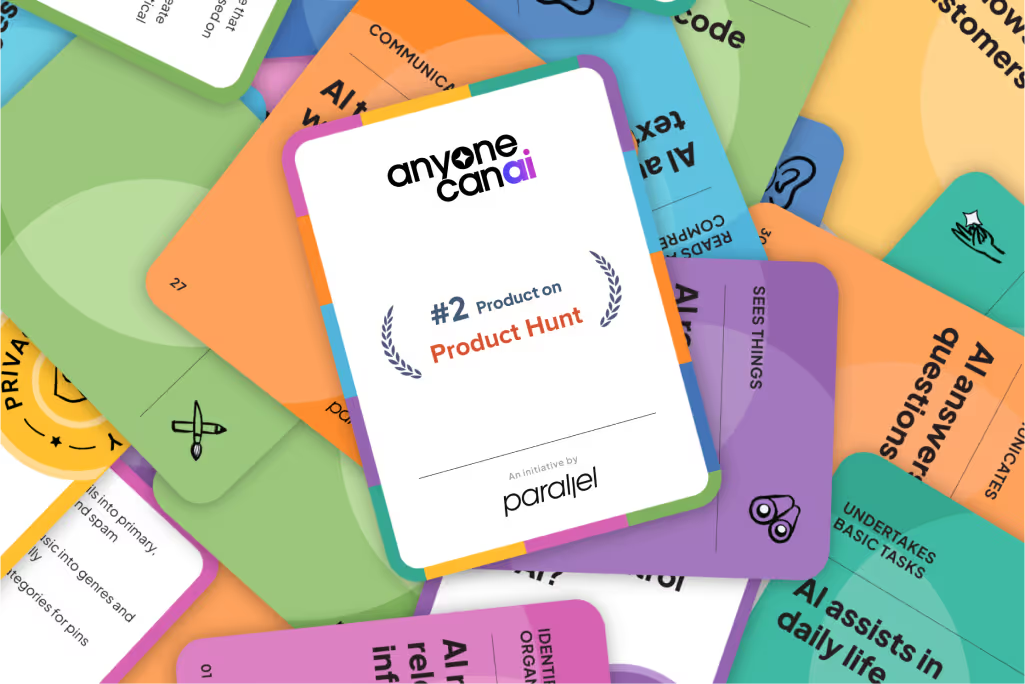

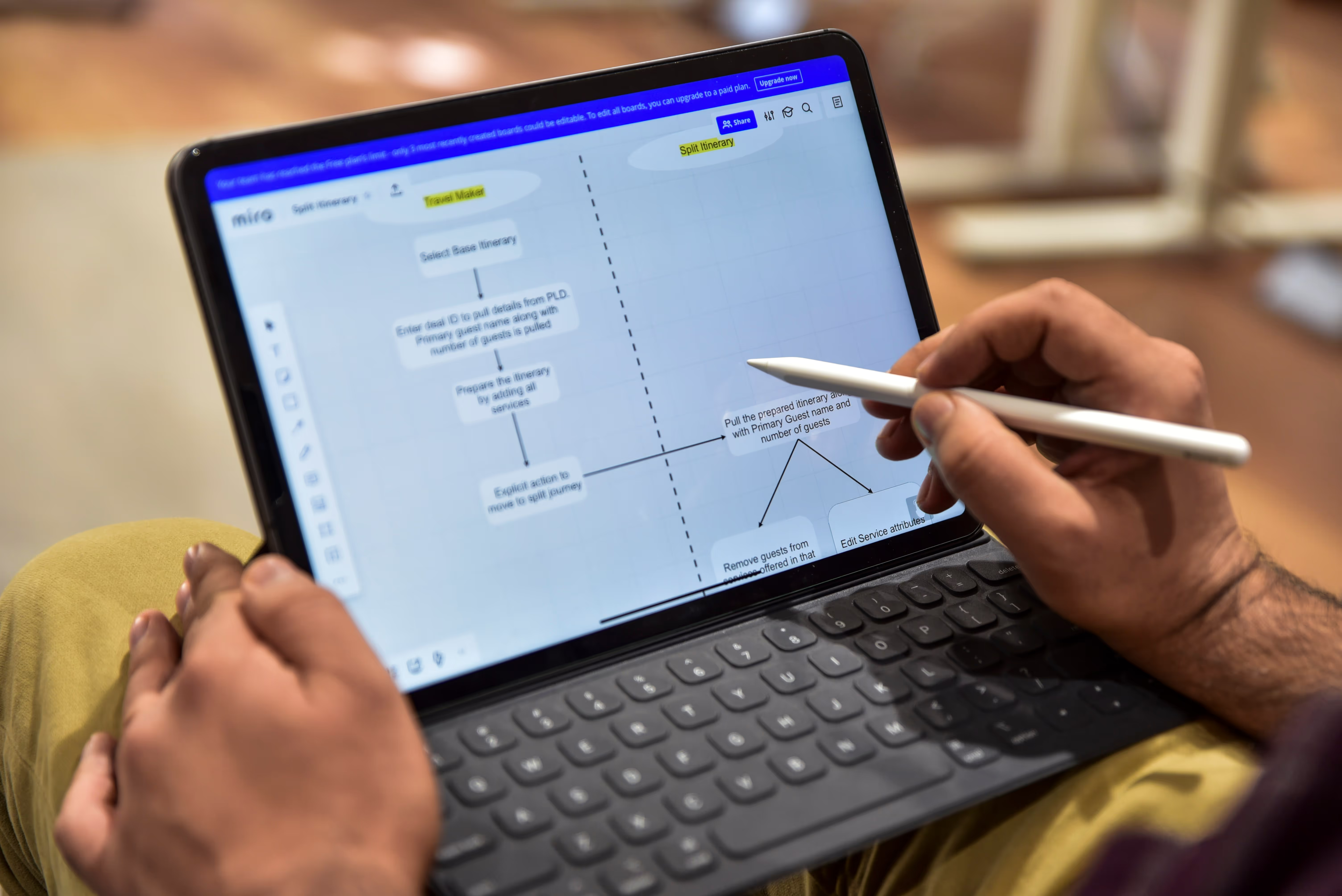






.avif)

